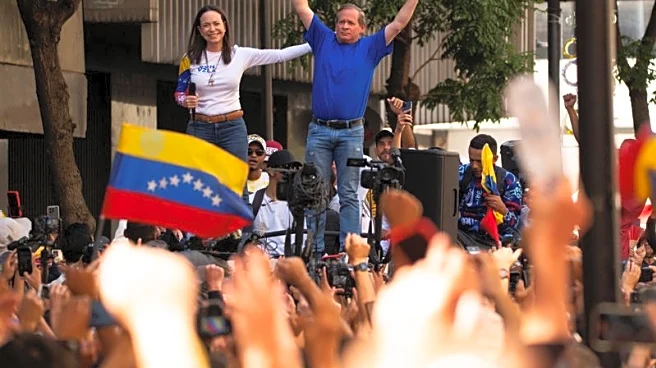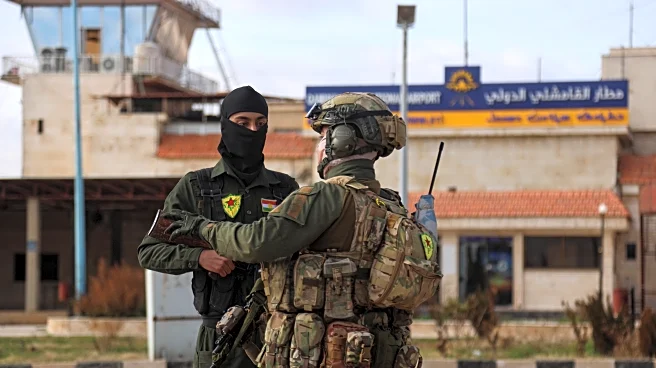What's Happening?
Israel has confirmed the receipt of the remains of Hadar Goldin, a soldier killed in the Gaza Strip in 2014. Goldin was killed shortly after a ceasefire took effect during the war between Israel and Hamas.
His family has campaigned for 11 years to bring his remains home, marking 4,000 days since his body was taken. The return of Goldin's remains is a significant development in the U.S.-brokered truce, which has faced challenges during the slow return of hostages' bodies and ongoing skirmishes between Israeli troops and militants in Gaza. The remains were transported to the national forensic institute, with many people gathering to pay their respects. Prime Minister Benjamin Netanyahu acknowledged the family's agony and noted that the military, not external parties, facilitated the return.
Why It's Important?
The return of Goldin's remains is crucial in the context of ongoing ceasefire negotiations and humanitarian efforts in Gaza. It highlights the complexities involved in the truce, which aims to halt fighting, release hostages, and increase aid to Gaza. The situation underscores the delicate balance of military and diplomatic efforts required to address longstanding conflicts. The involvement of Jared Kushner, a key figure in the ceasefire plan, further emphasizes the international dimension of the negotiations. The return of Goldin's remains also reflects the emotional and ethical commitments Israel makes to its soldiers and citizens, impacting public sentiment and political discourse.
What's Next?
Negotiations continue to secure safe passage for trapped Hamas militants in exchange for surrendering their weapons, following the release of Goldin's remains. The ceasefire plan's second phase, involving disarming Hamas and governing postwar Gaza, remains unresolved. Israeli officials have stated that existing agreements should not be reopened, indicating potential resistance to further negotiations. The situation remains fluid, with ongoing clashes in Gaza and the broader implications for regional stability and international relations.
Beyond the Headlines
The return of Goldin's remains highlights the ethical and religious values associated with military service in Israel. It underscores the sacrosanct pact between the state and its citizens, who are required to serve in the military. The family's struggle to bring Goldin home reflects broader societal issues related to military service, national identity, and the emotional toll of conflict. The situation also raises questions about the humanitarian rights of soldiers and the responsibilities of the state in conflict resolution.











